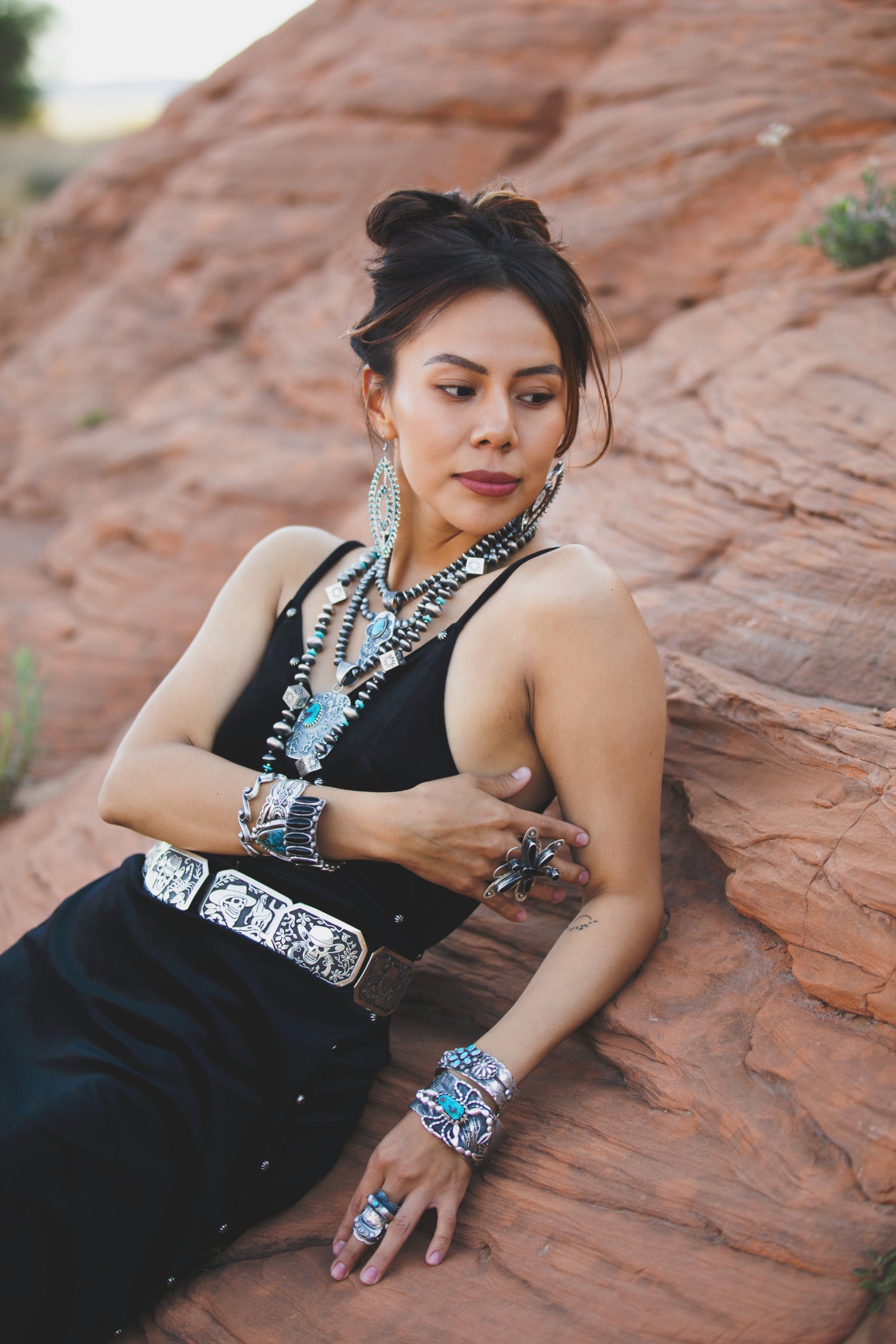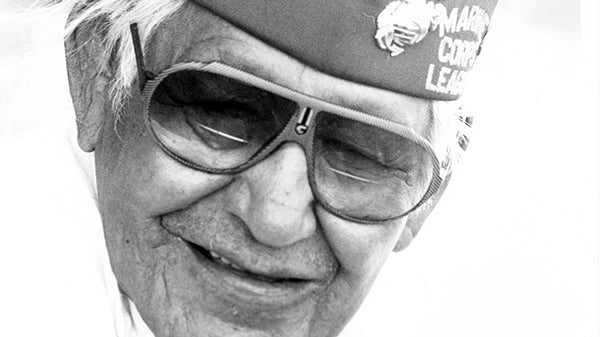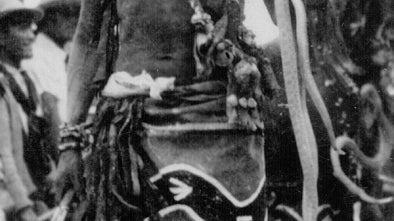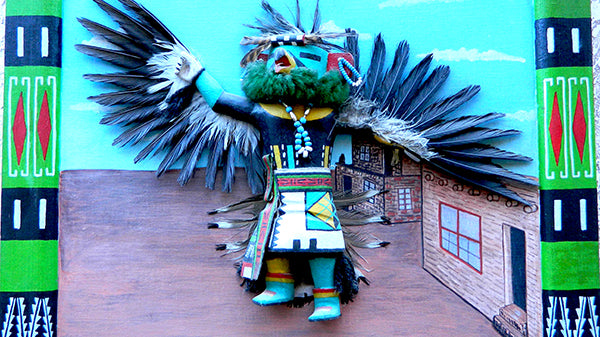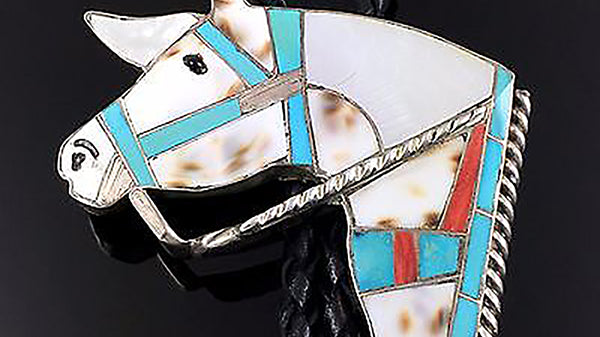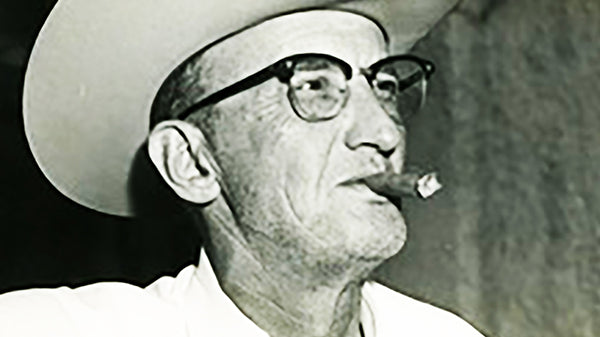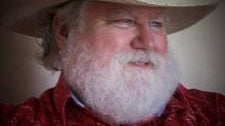Perry Null Trading
Carl Gorman: Artist & Navajo Statesman
Early in life Carl Gorman did well as a bootlegger on the Reservation. Then he was one of the few native traders. His father Nelson Gorman had a post near Chinle. Carl’s language skills were obvious—during the infamous stock reduction, he was used as a Navajo translator for the government—and he was one of the first Code Talkers taken.
The Leo Poblano Snake Dancer
Looking at the small black and white photo on page eighty-four of the famous C. G. Wallace sale catalogue from 1975, it is difficult to understand how this inlayed figure has become the iconic work of the master stone cutter Leo Poblano.
A Little Known Zuni Art Form
During what I have dubbed the “Golden Age” in Zuni—the Forties and Fifties—there were many artists who did it all, finally picking the talent most lucrative—usually jewelry work. Even then they often still had to have a “real” job to support their families.
Herding Horses
The horse is a very popular design in Zuni jewelry but they can be confusing if they are not cleanly signed. Two types are especially difficult. Overlay inlay—once called Zuni inlay because nobody else did it—would be difficult to attribute if they are not signed.
The Legend of C.G. Wallace
Most of the public information dealing with C. G. Wallace seems to date from the article by Mike Tharp that appeared in the August 1974 issue of Arizona Highways. The problem with that piece is that Wallace himself was the only source for the information there.
Ernie Bulow - Researching art of the Southwest Archives
CHILDREN OF THE EARTH
It is unfortunate that the “New Agers” have pre-empted the phrase “Mother Earth” because Native Americans used it to explain to the outside world the relationship they felt toward the living soil that gave birth to virtually everything of value in their world. No Indian enterprise is closer to the germinative spirit than the making of Native American Southwest pottery, created from the earth itself.

